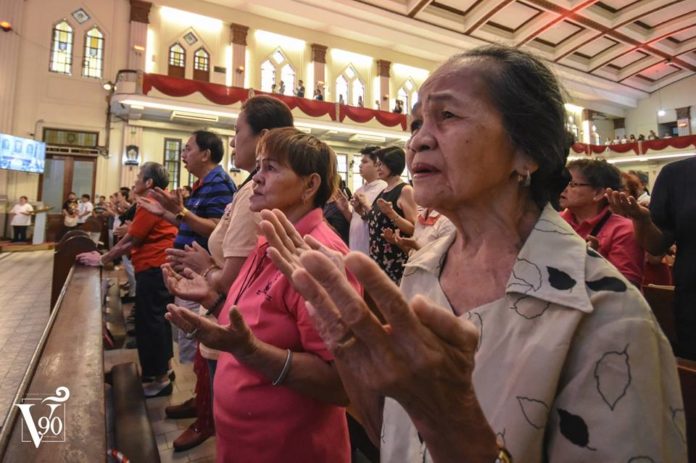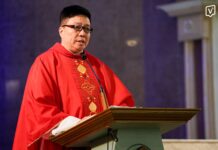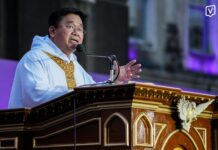CHURCH officials and laymen have urged Filipinos to be critical and follow their conscience in choosing candidates for public office with the 2019 midterm elections slated on May 13, Monday.
Archbishop Socrates Villegas of the Lingayen-Dagupan archdiocese, in a pastoral message, said the leaders people elect in office is a reflection of the electorate.
“The kind of leaders we elect reveals the kind of people we are. The winners in elections are mirrors of the values and aspirations, dreams and hopes of the people who voted for them. It can show our backward moving society,” the former president of the Catholic Bishops’ Conference of the Philippines said.
“We have the duty to assess [the candidates] diligently and, freed from pressure, check if they meet our standards. We decide; not the candidates. Be critical voters. Be Godly voters. Bring your faith as you choose,” he said.
He added that it was the task of the Church to be ‘involved’ in political issues to uphold the values of society and the freedom of its citizens.
“When we demand that religion be purely a private matter that it should not touch political choices, society suffers. Democracy is hurt. And if we continue to keep ethics out of public service, democracy will be killed quietly unnoticed,” Villegas said.
The Catechism of the Catholic Church states that “the choice of the political regime and the appointment of rulers are left to the free decision of the citizens.”
It adds that the faithful are encouraged to participate in the pursuit of the common good which is needed in order to promote human dignity.
Fr. Ranhilio Aquino, a UST alumnus and dean of the San Beda University Graduate School of Law, said the doctrine of the separation of Church and State is “not self-executory” and does not prohibit religious groups to engage in political issues.
“The separation of Church… are principally prohibitions on state interference with religion. They do not allow the state to restrain the practice of religion… [b]ut there’s nothing there that prohibits the Church from commenting on political matters,” he told the Varsitarian.
Aquino pointed out that the Church could get involved in politics by focusing on the education of voters and encouraging more qualified Catholics to run for public office instead of assuming the government’s role.
“The Church has recognized its limits. It cannot run for government. The Church must recognize its limit of competence. If the Church recognized its limits, probably it would safeguard its credibility more,” he added.
Former senator Rene Saguisag said the Church has a role in forming the right conscience of the citizens and promote responsible voting during elections.
“What CBCP does is walang ine-endorse na specific candidate but [they] just let the people know kung ano `yung criteria ng isang kandidato na maayos,” Saguisag said in an interview.
In 1991, then Manila Archbishop Jaime Cardinal Sin initiated the establishment of the Parish Pastoral Council on Responsible Voting (PPCRV), a non-partisan organization that serves as a watchdog in ensuring a fair and fraud free elections.
PPCRV also advocates for electoral reforms and conducts voters’ education seminars around the country.
Asst. Prof. Allan Basas, faculty secretary of the UST Institute of Religion, said the Church avoids any form of block voting out of respect for the freedom of the people to choose their own candidates.
“Kaya dapat talaga masusi talaga yung ginagawa ng Simbahan in terms of letting the people know responsible voting. Even the sanctity of the ballot itself is taught by the Church,” he said.
Echoing Villegas, Basas stressed that participating in national elections is a Christian duty encouraged by the Church to contribute to the social transformation in the country.
“So yung boto mo should be made to realized na it will have an impact of the present, future of the Philippines society,” he said in an interview with the Varsitarian.













